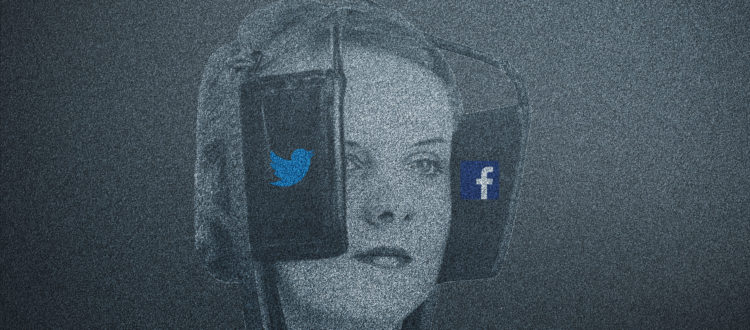The Social Media Echo Chamber
Social media parlance and procedure are constantly evolving. Phraseology and expectations are mysteriously codified into the minds of the masses. In the social media echo chamber, parameters develop progressively and often imperceptibly. Paranoia and subtweets, expectations and ultimatums, flattery and bullying abound in the social media echo chamber. It is a messy world full of messy people.
From one point of view, the only difference between the Christian social media echo chamber and High School is that most of the influential figures on social media are in their 20s, 30s and 40s. Human nature being what it is, social behavior never changes. Surely there must be a way for us to regulate our engagement in the social media echo chamber.
Nearly four years ago, Kevin DeYoung wrote a post titled, “The Ten Commandments of Twitter.” What he set out in that post is as apropos today as it was then. I especially find the second and eighth points helpful in light of the nature of social media: “Thou shalt not assume the worst about the tweets of others;” and “Thou shalt not make public demands of complete strangers.” If we would all commit to keeping these two rules, life would be quite a bit easier for all of us in the echo chamber of social media.
There have been numerous occasions when I have inadvertantly used a social media Shibboleth in the title of a blog post or in a tweet, only to have the social media gestapo pounce on me for doing so. The other day, I made a passing reflection about how God didn’t give us a musical style as a reconciling tool for the church in the pages of the New Testament. I was thinking in broad categories. So much of what I write helps me articulate what I think–irrespective of prevailing public discussions. I wasn’t thinking about the “regulative principle of worship” debates per se. I wasn’t thinking about racial reconciliation per se. A friend reached out to me privately (a thing for which I am always exceedingly grateful) to express dismay about my assertion–since, in his assessment, I was taking a shot at those who emphasize the need for “racial reconciliation music.” The phenomena of social media paranoia and subtweets had surfaced. My friend was assuming that I had used the word “reconciliation” in the tweet in order to subtweet something about which many are currently pontificating in the social media echo chamber. I hadn’t taken the time to read anything on my friend’s social media accounts, so I’m not sure; but, educated guesses being what they are, perhaps he had recently written something about how we should be thinking about musical style as a reconciling tool for race relations in the church. Of this much I am sure, I was floating a thought that existed in my mind outside of the social media echo chamber; but, could not escape the expectations of the echo chamber itself.
This is not to say that I have never passive-agressively subtweeted or have never been paranoid about having others subtweet something in response to something that I have said or written. I am guilty of falling into all of the snares of the social media echo chamber. I am guilty of wanting others to see what I write and engage with it. I am guilty of wanting to be a part of a discussion with the cool kids (C.S. Lewis would suggest that I broke one of the rules of the Inner Ring by intimating that I am not, in fact, in the Inner Ring). I am guilty of writing things in response to prevailing ideological and methodological discussions without naming those I have in mind.
While acceptance and non-judgmentalism is trumpeted across the hilltops of society, bullying and ultimatums have become far too common in both the secular media and the social media echo chamber of Christianity. Not a week goes by that I do not read someone in my twitter or Facebook feed chiding another for not supporting their agenda with their intensity and their approach. Many have sought to steer clear of speaking to certain subjects online, simply on account of the fact that they feel as though they have to agree with a certain segment of the echo chamber or risk alienation and ostracization. The irony is, of course, that as soon as some choose to say nothing, they are flanked as being complicit in the toleration of systemic structures of evil.
I am increasingly realizing that there are pernicious deficiencies and limitations to social media. There is the danger of getting embroiled in unnecessary controversy, the danger of trying to pursue popularity, and the danger of misunderstanding what others are saying. There is the shortfall of not being able to articulate adequately enough–either contextually or verbally–when others are trigger happy to critique. There is the danger of thinking more highly of oneself than one ought to think. There is the snare of wasting time interacting with others online when we should be out in our communities pursuing our friends, neighbors and co-workers with the Gospel. I am guilty of living far too often in the social media echo chamber. I imagine that you are too. Let’s labor to use social media wisely; but, let’s recognize all of the limitations, snares and shortcomings that accompany this not-so-brave new world of social media. Let’s push ourselves out into society to interact with the men and women who need Christ around us and who do not care an iota about our social media echo chambers. In doing so, we will find that our chambers are far more myopic than many of us would wish to admit.




Pingback : Nick Batzig - The Social Media Echo Chamber